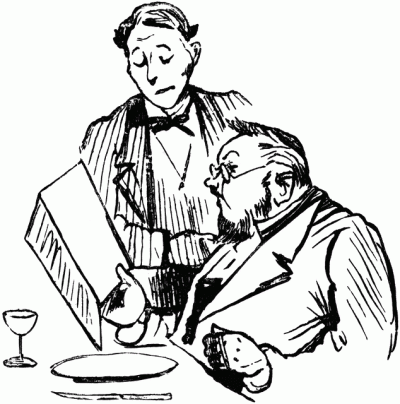Tales of a Hamptons Waitress: No Fries, No Money

The last time I ate at a McDonald’s was a long time ago, like years. Bush II was still president. I remember it because I had been out of the country for several months, and the bacon double cheeseburger I ordered was the first non-kosher food I’d eaten in all that time.
Like an idiot, I forgot to check the bag before I pulled away from the drive-through. I got as far as the parking lot when I realized my fries were missing. There is no point in eating greasy McDonald’s if there are no fries.
I parked and went inside. A young woman stood at one of the registers, and a customer was telling her he ordered something and he didn’t get it and could he please have it. She asked the manager, who sighed and rolled his eyes and said they didn’t have whatever “it” was. He talked to her and pointedly ignored the customer.
The customer said to the woman, “Is he always a dick? You don’t deserve to be treated like this.” The girl blushed. The customer walked away in a huff, and the woman turned to me.
“Can I help you?” she asked. She looked defeated, like she could tell the only reason I stood there was because something hadn’t gone right.
“Um, I didn’t get any fries?” It came out like a question. I felt ashamed. I knew she wasn’t getting paid enough to care about my stupid fries or to deal with her miserable manager or disgruntled customers.
Recently, fast-food workers across the country have gone on strike to demand higher wages and more hours. They want to be able to make a decent living and stay out of poverty just like anyone else. There is a stigma attached to working in fast food that the person serving the fries must not be capable of doing anything else.
In an Aug. 29 article published by Reuters, Robert Hiltonsmith, a policy analyst at Demos, a liberal think tank, said that if the minimum wage had kept up with productivity and inflation, it would be closer to $17 per hour. He added that in many cases, low pay wasn’t justified by a worker’s lack of marketable skills.
“Seventy percent of these fast-food workers are aged 20 or over, so they’re not teenagers, and of that 70 percent, about a third of them have college degrees,” he said. “So it’s not that they don’t have skills — in many cases, the jobs aren’t there for them.”
As the economy continues its sluggish recovery, low-wage occupations (where the pay is less than $15 an hour) have added the largest number of new jobs. If someone makes the federal minimum wage of $7.25 per hour — as many fast-food workers do — and works 40 hours per week for the entire year, before taxes they stand to earn $15,080. That is only $3,590 more than the federal poverty line for a single person, which is kind of insane when you think about it. How are they supposed to save for emergencies? Save for education? For their children’s education? How are they supposed to help the economy by spending money when they don’t have any money to spend in the first place?
No job is perfect, but there are jobs that are far below the rest in terms of pay, benefits, hours, and humane treatment. Generally, people want to do well at their jobs, but where is the motivation to work hard if the company you work for doesn’t even pay you enough for you to survive? I’d imagine it would be demoralizing after a while.
I get my fries, and as I pull out of the parking lot I read the sign below the Golden Arches. “Now Hiring,” it says.
